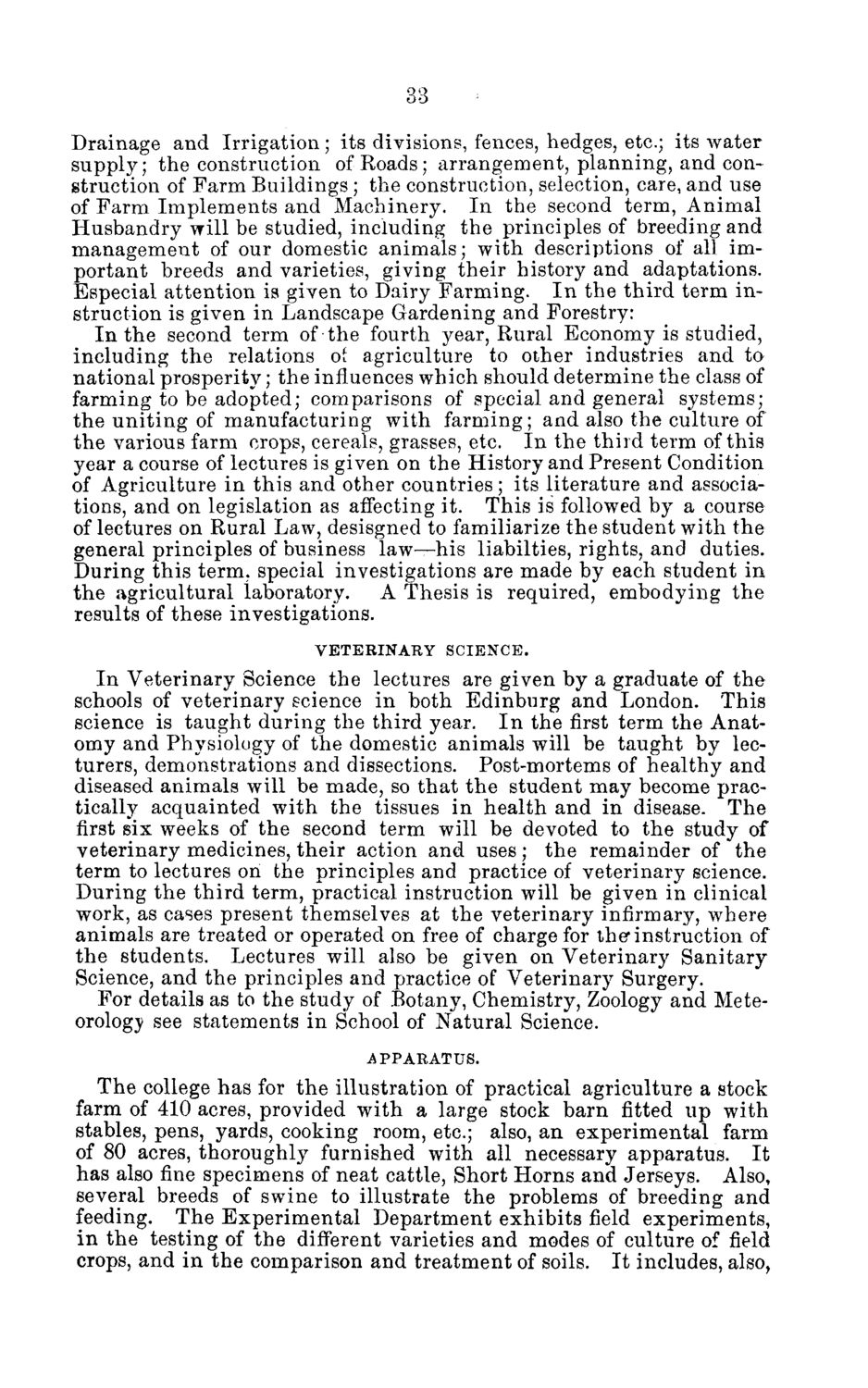| |
| |
Caption: Board of Trustees Minutes - 1876
This is a reduced-resolution page image for fast online browsing.

EXTRACTED TEXT FROM PAGE:
33 Drainage and Irrigation; its divisions, fences, hedges, etc.; its water supply; the construction of Roads; arrangement, planning, and construction of Farm Buildings ; the construction, selection, care, and use of Farm Implements and Machinery. In the second term, Animal Husbandry will be studied, including the principles of breeding and management of our domestic animals; with descriptions of all important breeds and varieties, giving their history and adaptations. Especial attention is given to Dairy Farming. I n the third term instruction is given in Landscape Gardening and Forestry: In the second term of the fourth year, Rural Economy is studied, including the relations of agriculture to other industries and to national prosperity; the influences which should determine the class of farming to be adopted; comparisons of special and general systems; the uniting of manufacturing with farming; and also the culture of the various farm crops, cereals, grasses, etc. In the third term of this year a course of lectures is given on the History and Present Condition of Agriculture in this and other countries; its literature and associations, and on legislation as affecting it. This is followed by a course of lectures on Rural Law, desisgned to familiarize the student with the general principles of business law—his liabilties, rights, and duties. During this term, special investigations are made by each student in the agricultural laboratory. A Thesis is required, embodying the results of these investigations. VETERINARY SCIENCE. In Veterinary Science the lectures are given by a graduate of the schools of veterinary science in both Edinburg and London. This science is taught during the third year. I n the first term the Anatomy and Physiology of the domestic animals will be taught by lecturers, demonstrations and dissections. Post-mortems of healthy and diseased animals will be made, so that the student may become practically acquainted with the tissues in health and in disease. The first six weeks of the second term will be devoted to the study of veterinary medicines, their action and uses; the remainder of the term to lectures on the principles and practice of veterinary science. During the third term, practical instruction will be given in clinical work, as cases present themselves at the veterinary infirmary, where animals are treated or operated on free of charge for the* instruction of the students. Lectures will also be given on Veterinary Sanitary Science, and the principles and practice of Veterinary Surgery. For details as to the study of Botany, Chemistry, Zoology and Meteorology see statements in School of Natural Science. APPARATUS. The college has for the illustration of practical agriculture a stock farm of 410 acres, provided with a large stock barn fitted up with stables, pens, yards, cooking room, etc.; also, an experimental farm of 80 acres, thoroughly furnished with all necessary apparatus. It has also fine specimens of neat cattle, Short Horns and Jerseys. Also, several breeds of swine to illustrate the problems of breeding and feeding. The Experimental Department exhibits field experiments, in the testing of the different varieties and modes of culture of field crops, and in the comparison and treatment of soils. It includes, also,
| |